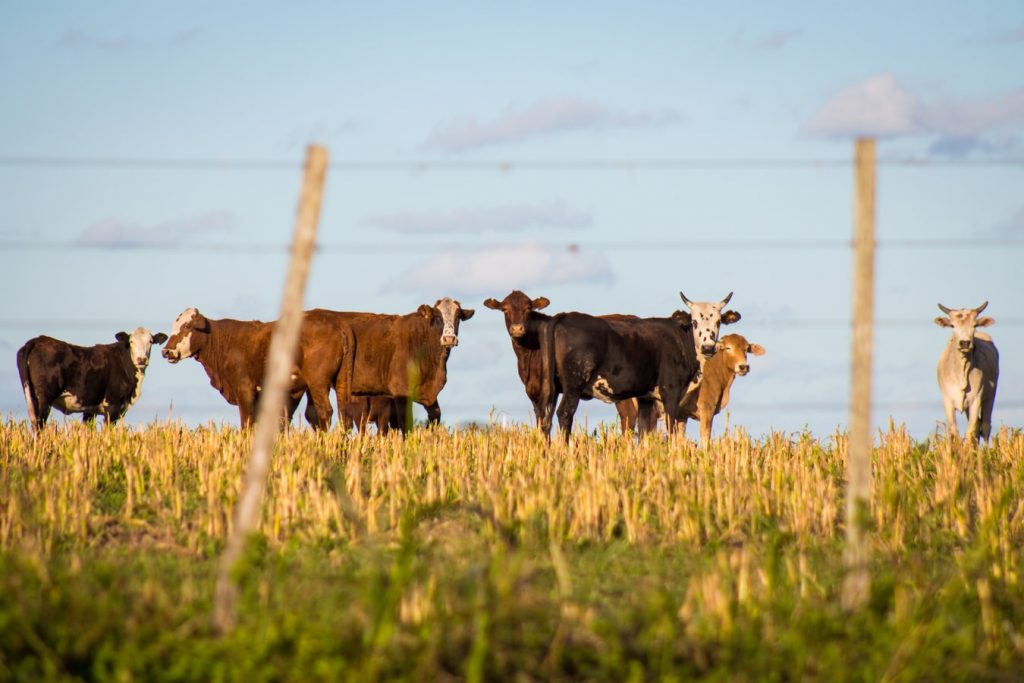
Our Eating Habits are Killing the Planet
by Martin Greenwood | Apr 26, 2021 | Climate change and sustainable development | 0 comments
Image: https://unsplash.com/@ggiqueaux
By Carlota Rubio Subiris
Yes, our eating habits are killing our planet, and nothing is being done about it. 18% of the greenhouse gas emissions across the globe derive solely from the livestock sector. This is more than all the emissions produced by the entire transport sector. Not only this but ruminants, such as cattle, emit 37% of anthropogenic methane, which has an even higher global warming potential than carbon dioxide. It is estimated5 that if there is no intervention and the livestock industry continues to develop as projected; the emissions emitted by this sector alone will make the current global temperature rise above 1.5ºC in the 2060s, surpassing the fixed carbon budget. However, if we all act collectively, there is still a chance to save our home.
Despite being barely addressed by governments and the media, the rising mass consumption of meat and animal-derived products is one of the major contributing factors to climate change. A report by FAO predicts that global meat production will reach 465 million tonnes in 2050 as a result of continued population growth and rising prosperity. If this growth is not stopped a point will be reached in which there will not be a way back.
Attracting policymakers and those in positions of power to the cause of reducing meat consumption is resulting to be very challenging. One reason for this is the government’s belief that society will not accept completely cutting meat out of their diets, however, this is not ultimately what those concerned with climate change are trying to achieve. The primary aim at this stage is a reduction in meat consumption as well as a replacement of meat products with more sustainable ones, such as from local and ecological origins. A flexitarian diet is an example of this, here a mostly vegetarian diet is followed but an occasional meal containing meat or fish will be eaten. Flexitarianism from an ecological perspective could be argued to be even better for the environment than completely cutting off meat, and still, policymakers fail to acknowledge or draw attention to this. A report by Hans Dagevos and Jantine Voordouw finds through Dutch survey results that flexitarians are progressing towards making their diets more sustainable by reducing their meat consumption without the need of eliminating it. This proves that policymakers could adopt and put forward initiatives that encourage meat reduction without asking for a radical change. A diet low in meat is already something common for millions of Dutch citizens, serving as proof that with the right mindset and government involvement, change is achievable.
Yes, as individuals we can reduce our meat intake however more meaningful and lasting change must come from large corporations within the livestock sector. In 2016, for example, more greenhouse gases were emitted by the 20 largest meat and dairy companies than the whole of Germany, which at the time was Europe’s biggest polluter. Companies have as their primary objective increasing their profits not the protection of the environment, consequently, government involvement in the livestock industry is undeniably crucial.
Here is where the theory introduced by Allan Schnaiberg in 1980, ‘The Treadmill of Production’, comes in. It challenges the idea that demand determines supply, instead, it argues that production decisions are made outside the realm of consumers. It is the production decisions made by corporations that shape and structure consumption more than vice versa. Therefore, governments must introduce policies that will force these companies to reduce their meat production, which will in turn result in the decreased consumption of meat by consumers. Governments, corporations, and individuals have to work tightly for actual progress to occur, it is indispensable.
The planet will not be able to survive if change is made only by a few. Mass participation from all individuals, governments, and corporations is the only way we will be able to avoid the imminent, irreversible climate catastrophe. We must all begin to accept the reality of the situation we find ourselves in and the role we each play in it if we want to save our planet.
Recent Posts
Recent Comments
- k on Two Busy Days Polluting and Killing
- Why ‘Green Consumerism’ is not the Solution? | Cities Explained on How Neoliberalism Destroyed the Planet and Why Capitalism Won’t Save Us
- Hope on Holiday Hunger: The starving children of Britain
- https://kernyusa.estranky.sk/clanky/risk-factors-linked-to-anxiety-disorders-differ-between-women-and-men-during-the-pandemic.html on Social media as the new leadership in social movements: The Egyptian Revolution
- UK Trip on The impossible barrier: Would you fail the ‘Life in the UK’ test?
Archives
Contact us
+44 (0) 161 306 6000

0 Comments